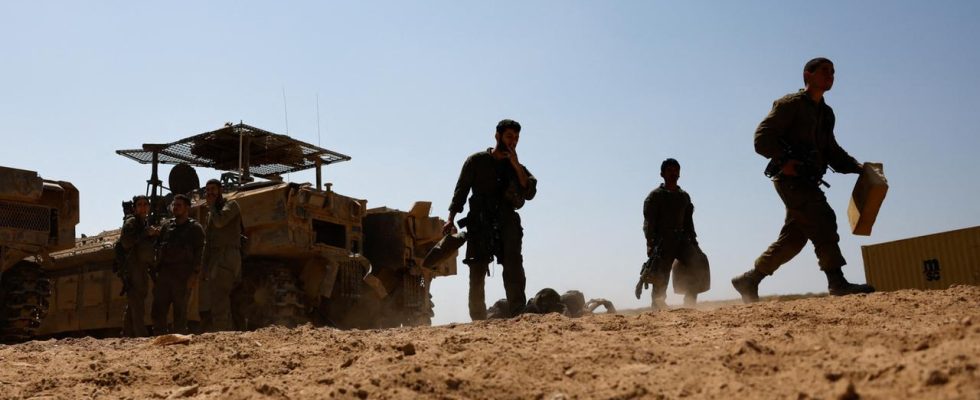Israel’s war cabinet has discussed a response to the Iranian attack. According to media reports, there should be a decisive response, but one that does not trigger an open war. And it should happen soon.
After the Iranian attack on Israel, Prime Minister Benjamin Netanyahu’s war cabinet discussed a response. At the almost three-hour meeting, various reactions with different dimensions were discussed, reported the TV station Channel 12. Accordingly, Iran should be punished without, however, triggering a major war.
Immediate reaction?
The Times of Israel also reports that the war cabinet has decided to issue a “strong” response that will send the message that Israel will not let an attack of this magnitude go through without a response. What that actually means, however, remained unclear. According to reports, the response will take place soon – possibly today.
Government officials and the army had previously said that there would be a reaction – to whatever extent. For example, Israeli Chief of General Staff Herzi Halevi said that Israel was still discussing its next steps, but there would be a response to the major Iranian attack. He said this at the Nevatim air base, which was slightly damaged in the attacks.
Calls for de-escalation
Internationally, numerous countries called for de-escalation. Federal Foreign Minister Annalena Baerbock insisted on compliance with international law. “The right to self-defense means repelling an attack. Retaliation is not a category in international law,” said the Green politician at an aid conference for Sudan in Paris organized by France and Germany. A wildfire in the region must be prevented.
Chancellor Olaf Scholz also called on Israel to contribute to de-escalation. The largely successful defense of around 300 drones and missiles is “a success that perhaps should not be wasted,” said Scholz in Shanghai. “Hence our advice to contribute to de-escalation yourself.” Scholz also again warned Iran. The first-ever attack on Israeli territory was a “bad escalation” that should not have happened, he said.
Guterres for “maximum restraint”
French President Emmanuel Macron made similar comments. “We will do everything we can to prevent a conflagration, i.e. an escalation,” he said on French television. They want to convince Israel that a response to the Iranian attack should not be further escalation.
British Foreign Secretary David Cameron emphasized in an interview with Times Radio that Israel, as an independent, sovereign country, had every right to respond to such an attack. But Great Britain also wants to avoid escalation and advises “our friends in Israel that it is time to think with both our heads and our hearts.” UN Secretary-General António Guterres called for “maximum restraint” from all sides. “Neither the region nor the world can afford another war,” Guterres told an emergency meeting of the UN Security Council.
Biden pledges solidarity with Israel
Support for Israel came from the White House. US President Joe Biden said at a meeting with Iraqi Prime Minister Mohamed Schia al-Sudani in Washington that he wanted to “work for a ceasefire that brings the hostages home and prevents the Middle East conflict from becoming even more widespread “It’s already the case.” The USA had previously made it clear that it would not support Israel in a possible counterattack against Iran.
U.S. National Security Council spokesman John Kirby would not say whether the U.S. has been briefed on Israel’s response plans or expects to be informed. “We’ll leave it to the Israelis to comment on this,” he told reporters. “We are not involved in their decision-making process about a possible response,” Kirby said.

